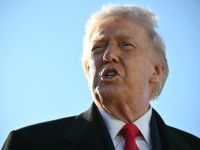The global economic recovery continues with improvements in long-lagging advanced economies but moderating growth in emerging markets, the International Monetary Fund’s managing committee has said.
“Growth remains subdued, however, and downside risks persist, with some new risks emerging,” the committee said in its communiqué to conclude the IMF-World Bank annual meetings in Washington.
Immediate risks include the stalemate in the US Congress over budget and debt issues. The IMF called for “urgent action to address short-term fiscal uncertainties” in the US.
The looming tightening of US monetary policy — which has already affected capital flows and long-term interest rates just from market expectations — presents potential spillovers and “new challenges” especially in emerging and developing economies.
“The eventual transition toward the normalisation of monetary policy in the context of strengthened and sustained growth should be well-timed, carefully calibrated and clearly communicated,” the IMF committee said.
The Fed tapering, looming US debt crisis and continuing budget stalemate, which has forced a partial US government shutdown since October 1, dominated the IMF and World Bank meetings in Washington, moving the eurozone’s woes out of the spotlight for the first time in years.
US Treasury Secretary Jack Lew warned that the US role as “the anchor of the international financial system” could be at stake if Congress fails to quickly authorise borrowing beyond the current legal limit of $16.7tn.
“The US cannot take this hard-earned reputation for granted,” he told the IMF committee.
European Central Bank chief Mario Draghi called any US default “unthinkable,” and said a longer-running debt crisis “would be negative, very negative, for the world economy.”
German Finance Minister Wolfgang Schaeuble said that a solution to the US political crisis was simply a “must”. He said Lew had predicted that an agreement with the opposition-led House of Representatives would be reached by today.
The eurozone is emerging from recession while stimulus measures “have induced a recovery” in the long-stalled Japanese economy, the IMF said.
Loose monetary policies in the US, Japan and the eurozone “have helped support global growth while maintaining stable prices, and remain appropriate,” the committee said, while calling for “credible” budget policies, and continued repair of the banking sector and structural reforms needed to raise long-term growth, especially in Europe and Japan.
Draghi said the eurozone recession had “bottomed out” earlier in the year, and the region is returning to growth. “The recovery is still weak, it’s fragile, it’s uneven,” he said.
Citing inflation below 2% and falling, he said that eurozone monetary policy “will remain accommodative ... for an extended period of time,” as the bank’s guidance has indicated.
Draghi said that eurozone growth had been mostly “export-led,” but there has been a “slight increase” in domestic demand, which can fuel a more self-sustaining recovery.
“It seems that it’s spreading geographically. It’s also spreading across components of aggregate demand,” he said.
Some of the currency region’s stressed economies are showing signs of regaining competitiveness.
IMF Director Christine Lagarde, meanwhile, warned US spending cuts must not be too drastic or they could threaten global economic recovery.
In an interview on NBC talk show ‘Meet the Press’, Lagarde said the US must address its spending on social programmes like medicare and social security.
But, she added: “The point is not to contract the economy by slashing spending brutally now, as recovery is picking up.
“The pace of consolidation has to be sensible in order to protect that growth which is generating jobs, and which is helping in all sorts of ways,” Lagarde said.
The US must deal with “entitlement (spending) that will come up and haunt you in a few years’ time,” she said, but the government needs “a balanced approach”.
The IMF director said the US economy is already showing “real improvement,” evident in indicators from the housing sector to the automobile industry to banking and household spending.
But she said it is crucial the government work out a deal to re-open the government and continue borrowing so it does not default on its debt — and not just for a few weeks.
She warned of serious consequences from “a combination of the government shutdown for a period of time and, more seriously, more damaging, if the debt ceiling was not lifted with a degree of certainty and enough time so that people could, you know, sort of have the assurance that the economy was in good standing.”
“If there is that degree of disruption, that lack of certainty, that lack of trust in the US signature, it would mean massive disruption the world over. And we would be at risk of tipping, yet again, into recession,” Lagarde said.
The Senate was holding a rare session last night to grapple with the budget impasse, with just five days remaining before the US is set to reach the limit of its borrowing authority, putting it at risk of defaulting on its debt for the first time.
US headed toward ‘very dangerous moment’: World Bank
World Bank chief Jim Yong Kim has warned that the US was headed toward peril as politicians failed again to resolve a standoff over the budget and debt ceiling.
“We are now five days away from a very dangerous moment,” Kim said at the close of the annual World Bank-International Monetary Fund meetings in Washington on Saturday night.
The US and world economies face higher interest rates, falling confidence and slower growth if the US Congress does not raise the $16.7tn borrowing cap, Kim said.
The US Treasury has said that it would run out of adequate cash to pay all the country’s bills as early as October 17 without a debt cap increase.
That has sparked worries that Washington could default on its debt, something that would rock the world’s financial markets.
“The closer we get to the deadline, the greater the impact will be for the developing world,” Kim said.
“If this comes to pass, it could be a disastrous event for the developing world, and that in turn will greatly hurt the developed economies as well.”
“I urge US policy makers to avert this crisis,” Kim said.








